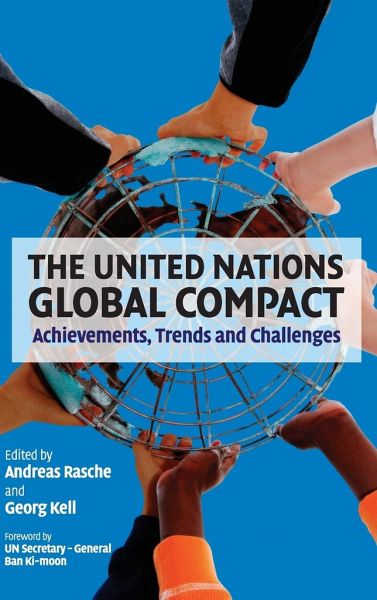
The United Nations Global Compact

PAYBACK Punkte
55 °P sammeln!
The United Nations Global Compact is a strategic policy initiative that encourages businesses to support ten universal principles in the areas of human rights, labor standards, the environment, and anti-corruption. It is the world's largest voluntary corporate responsibility initiative with more than 7,500 business and non-business participants in over 130 countries. This book reviews the first ten years of the Compact's existence (2000-2010) by presenting exclusively commissioned chapters from well-known scholars, practitioners from the business world and civil society, and Global Compact sta...
The United Nations Global Compact is a strategic policy initiative that encourages businesses to support ten universal principles in the areas of human rights, labor standards, the environment, and anti-corruption. It is the world's largest voluntary corporate responsibility initiative with more than 7,500 business and non-business participants in over 130 countries. This book reviews the first ten years of the Compact's existence (2000-2010) by presenting exclusively commissioned chapters from well-known scholars, practitioners from the business world and civil society, and Global Compact staff. They reflect on what the Global Compact has achieved, what trends it may have to respond to, and what challenges are ahead. The book contains not only up-to-date reflections but also debates recent changes to the structure of the Compact, including the Communication on Progress policy, the role of Global Compact Local Networks, and the role of emerging specialized initiatives.














